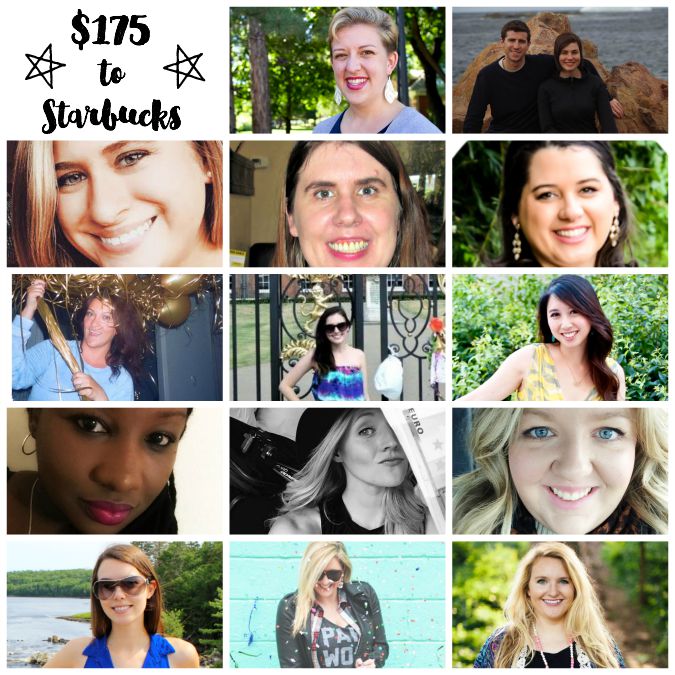Influence is a powerful phenomenon.
We all know of greatly influential people who use their influence either to better serve others, or to draw greater attention to themselves. Influence is desirable because it’s a clear indication that something we’re doing matters to people– perhaps even to people we don’t know in person.
But the difficulty with influence is that it’s morally neutral. Simply put, influence can be “good” or “bad”.
Yet, before we can even decide what kind of influence we want to have on others, we find ourselves wondering if we have any influence at all.
We wonder whether our everyday choices matter. We wonder whether our encouragement or wisdom falls on deaf ears.
We wonder whether our art is considered beautiful to anyone other than our mom.
And we wonder whether one day we’ll be able to look back and point to people whose lives are better because of something we did. Desiring influence is natural; finding it– and using it well– can be tough.
Redefining influence
Perhaps when you hear the word “influential,” you think of someone with a lot of power: CEOs, pop stars, the President perhaps.
What we often don’t think of are the people who influence us in personal ways. They teach us right from wrong, they help us in times of need, they lead us through seasons of darkness, and they bring us joy in our everyday lives. Those people, I believe, are the true influencers.
True influence requires making something personal before making it right. There isn’t a single truly influential person in this world who did not first identify with a greater problem before seeking to solve it.
[Tweet “True influence requires making something personal before making it right. via @daisylinshih”]
And whether our reach is small or large, what we all have in common is this: we all have, and can grow, our personal influence. Eventually that influence can gain enough traction to transform a relationship, change a life, and enrich a community.
The false image of “influence”
Today I challenge you to wipe away any preconceived notions you have about the word influence.
Together, I hope we can challenge the idea that we are “too small” to make a difference. Instead, let’s seize the opportunity to claim that impact in real ways. Let’s lose the need to feel validated by our reach, our circle, or our number of followers.
Let’s simply believe that our lives matter, that we matter, here and now. Our futures may be bright, but there is still no time like the present.
7 Reasons You Don’t Feel Influential (and how to fix it)
1) You don’t have a strong personality or stereotypical “leader” mentality.
Not the loudest person in the room? Can’t seem to win the arguments, or even get a word in?
It’s surprising that not all great leaders are extroverts or Type-A; nor do they necessarily have the “take charge” personality. Many excellent leaders lead by example, inspiring others simply by their lifestyle. Other leaders are thoughtful, introspective, and dedicated. If you’re not convinced, check out Susan Cain’s Ted Talk on the power of introverts.
Solution: Find out your personality type or strengths: you can use Myers-Briggs, Strengths-Finder, or other assessment of your choice. Be intentional about using those traits to improve any and every situation you’re in. Ask yourself what you offer that no one else does: you’re unique, and so is everything you offer.
2) Your resume is not “impressive” enough.
There is no doubt that a good skill set and strong education background will get you places. However, they are not the only source of influence.
Influence is like the force that fights a fire. It can take the form of the person throwing water on the flames, or the person filling up the bucket at the very end of the assembly line. It doesn’t matter where you are in the effort: you still matter.
Solution: If there’s a skill you feel you really need– or schooling that you need to go back for– then by all means pursue it. But if there isn’t a clear resume line that makes sense, then look at what you currently know how to do. Teach others. Volunteer your time. Help someone you know who lacks your skills or lacks free time.
3) You don’t think anyone needs your help or can learn from you.
Have you ever had a mentor? Chances are, that person felt unqualified to answer all of your questions or guide you through everything.
And that was probably true.
However, they offered you what they could, and you can do the same. Believe me, there are people who look up to you and admire what you’ve accomplished.
Solution: Offer to mentor somebody. Walk through a particular challenge with them: decision-making, college applications, job interviews, wedding engagement and planning, family transitions, etc. Support them and give good counsel when they ask for it.
4) You haven’t reached your goals yet.
Some of us think that influence follows success. We tell ourselves, When I have done ____, then I can ____.
The truth is, we might not ever reach our goals as planned, but that doesn’t mean we won’t make progress or succeed at something else. The lessons we learn while working towards our goals can prove invaluable.
Solution: Set achievable monthly (or weekly) goals, rather than one looming long-term goal. For example, if you want to run your own small business, set goals that relate to it: learning how to use Excel, developing meaningful client relationships, or diversifying your products. Celebrate success along the way, and make note of what you learn. Share those lessons!
5) You’ve experienced rejection or failure.
It is not always reassuring to hear, “Everyone fails. Even insert-successful-person-here failed!”
Failure is not the pre-requisite to success. Instead, it’s an opportunity.
The platitude to learn from our mistakes is hardly revolutionary, but perhaps sharing about our mistakes with others is. So many of us can be tempted to learn from our own mistakes– only to pretend we never made them. But there’s a loss in this: your mistakes can have a positive influence over other people, if you’re willing to talk about them.
Solution: If a past failure is hurting your confidence, ask what it will take to make this failure your strength. Can you encourage other people in the same boat? Can you point them to resources? If there are ways your mistake can help someone else, then it’s no longer just a mistake– it’s a tool.
6) You’re only friends with self-sufficient people.
Ask yourself a hard question: how do you and your friends compare? Do you aspire to be like them? Or do they aspire to be like you? Is there interdependence or is it one-way?
Here’s the problem with being friends with only people who are better off than you: you might feel inadequate. If your sole purpose is to break into a new network or circle, then you might have a hard time feeling like anyone cares what you have to offer.
Solution: Choose friends from a diverse spectrum of need: not just to feel needed, but for the opportunity to meet needs on a regular basis. The best friendships often exist between people who acknowledge their need for each other. Want to meet new people? Try joining a class, volunteering at a local organization, or stopping by a community event.
7) You haven’t shared your resources in a while.
It can be hard to feel influential when we don’t have the chance to give away something tangible.
I believe that generosity is not only an investment in a particular cause, but also an investment in ourselves. Every time we give, we become more concerned with something outside of our own lives– and that’s a good thing. Even making a small monetary difference is the beginning to caring for a cause over a longer period of time.
Solution: Give, give, give! Even if it’s just a small amount, find an organization that does work you think is compelling. Give on a regular basis, and stay up-to-date with the work that is being done. This will draw your heart close to something that matters. Here are more tips on how to be generous on a tight budget.
[Tweet “7 Reasons You Don’t Feel Influential (and how to fix it) via @daisylinshih”]
Don’t shortchange your influence for insignificance
It’s so easy for us to look around and expect someone else– with greater influence perhaps– to make a difference. But you and I need to stop telling ourselves that we aren’t good enough, or even that we aren’t there yet. The truth is, nobody is there yet, but we can all do something now.
Here’s a boost: $175 to Starbucks!
*Disclaimer: The cups of coffee pictured here are NOT from Starbucks. I took these photos at Joe in Manhattan*
Yes, it’s true– I myself don’t frequent Starbucks. But that doesn’t mean it can’t be useful! Here are a few ways you can spend your Starbucks gift card in influential ways:
- Buy a hot beverage for somebody who looks cold on your way to work.
- Offer to chat with someone over coffee who needs your advice.
- Bring coffee to a coworker who was up late working.
- Treat a friend you haven’t chatted with in a while.
- Give a gift card to someone else– just to brighten their day.




Beautiful words, Daisy! I remember one time when I was a camp counselor, one of my girls had an anxiety attack during a group challenge. So I pulled her aside and we sat by the lake and I just tried to reassure her of her value. At the end of the summer I received a handwritten letter from the girl’s mother, thanking me for taking care of her daughter that night, and that since then her confidence has improved. I nearly cried! I had no idea I could be influential like that!
jottedsonnets.blogspot.com
Thanks Stefanie, I’m so glad to hear that. I hope your spirits are lifted soon!
Thanks for reading, friend! I’m glad you found this encouraging. I often don’t think I have any authority to speak on a subject until I’ve mastered it, but the process is just as important to share.
Absolutely! Thanks for stopping by, Emilie.
Thanks Sheryl, I really appreciate that! I’m sure your clients are a good reminder that personal interactions sometimes make the greatest difference.
Thanks for reading, Jessa! And that’s a great example; the Lord can use anyone.
Thanks Madison! You’re right– our age can definitely detract from our sense of confidence and reach, but I think there are even younger people who look up to us and need our help!
Yes! this is so true, Linda.
Thanks for reading, Dupe! And you’re right– we often equate influence with popularity or power, when in reality, those who have influenced us are probably the ones who just really cared.
Thank you Adriana! Exactly– despite having a small circle we can have a large impact.
Absolutely! I’m so glad you’ve found her work encouraging– I have as well, even as an ambivert. And the worldly notion of power is a tricky thing, because we seem to really believe in it, forgetting that personal influence is what changes us and heals us. Thanks so much for reading this, friend!
Thank you Olivia– that means a lot to me! And yes– you are so right. every true influencer knows the potential of a personal relationship.
Absolutely! I’m sort of an ambivert myself, but I’m tired of type-A personalities that take charge and shut people out. I would love to be led by an introvert.
This is such a thoughtful post, Daisy. I love your point about it not always being helpful to hear that everybody fails. I don’t care how many times Abraham Lincoln ran for office — failure and rejection just always suck!
xoxo
Kat 🙂
Really enjoyed this post, I’ve been on a downer lately where I couldn’t figure things out. Loved reading this x
Stefanie | Casualllyawkward | Bloglovin’
Thanks for this Daisy. Often I’m too hard on myself because there are so many goals I still want to accomplish in life and I constantly find myself comparing what I’ve done to others. I really needed this as a start to the week! (:
http://www.accordingtokiki.net
Actions speak louder than word in my opinion. Being a living example of what you stand for is the best way to be influential if you ask me!
Such wonderful reminders. We each have to power to influence and I am often reminded by my clients that it is small words or phrases that mean more than the big ones.
I love these tips. When I get discouraged by my age I think about my favorite pastor started lifechurch at 28.
I love this post, Daisy! It’s so easy to undercut our influence or think we don’t have any because of our age.
X2. Sometimes, years later, someone will tell you what an influence you were when you had no idea anyone was watching/listening. So I recommend you be the best you can be every day just in case you are influencing someone.
Really insightful post. We all want to be influential but rarely do we thoroughly considered what precisely that means. Often we may already be influential in one way or another without realising it. After all you never know who is looking up to you and who you are influencing. Thanks for these tips!
thoughtful post!
http://www.heyprettything.com
Such a great thing to realize! Sometimes we feel so small but in reality we can impact the people around us in many ways!
My love for Susan Cain runs so deep. Her research on introversion has totally changed my perspective from seeing introversion as a weakness to be overcome to seeing it as a source of strength and influence. I love how you define the difference between “power” and “influence” — this is so important to remember. Everyone has some kind of influence, and it’s all about how we leverage this, as you say. So well written, my friend!
This post in itself is influential! Thank you for these tips. Remembering the power of normal, seemingly mundane relationships and the power they posses is hard, but I think it’s where every truly great influencer started. Pinning this!
I LOVED Susan Cain’s Ted Talk on introverts. I loved it so much, that I listened to the audiobook for her book “Quiet.” It was so interesting all the research she has gathered regarding introverts!
Wonderful tips and great reminders. Using failures to improve and learn and form strengths is an excellent way to view things!
Thank you for reading, Kay!
I love that you gave solutions to each of the problems. Love this!